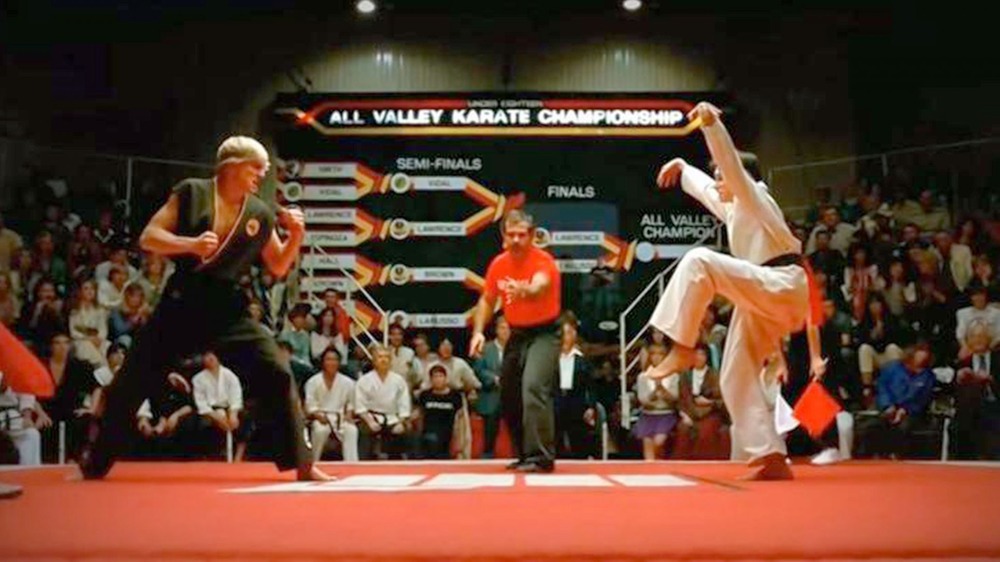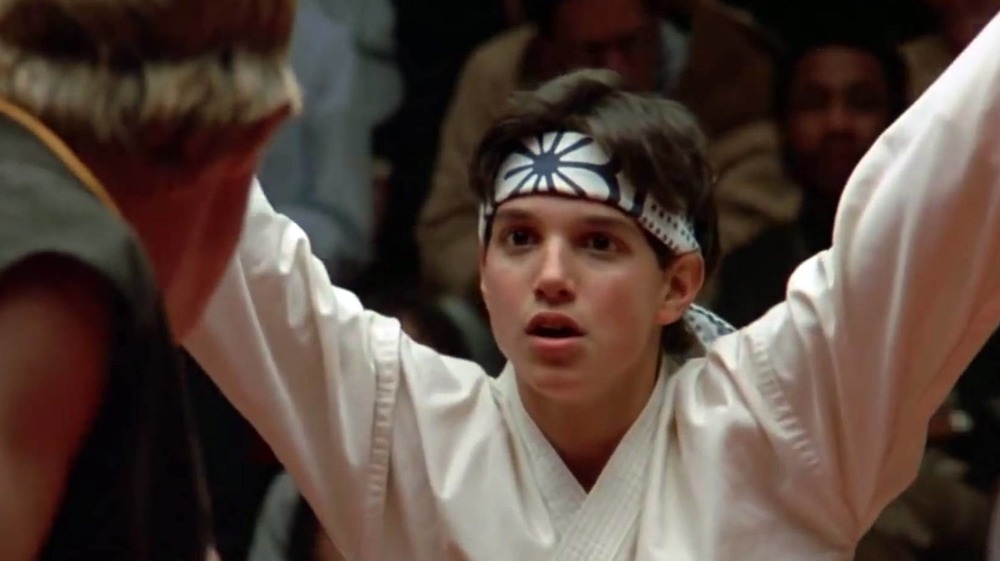Ralph Macchio Finally Weighs In On The Crane Kick's Legality In The Karate Kid
There are many questions that keep film buffs up at night. Why didn't the hobbits take the eagles to Mount Doom in The Lord of the Rings? Was Cobb in a dream at the end of Inception? And was the crane kick at the end of 1984's The Karate Kid actually legal?
In regards to that last question, it's a debate that's been reignited in the aftermath of Cobra Kai becoming a Netflix sensation. Johnny Lawrence (William Zabka) even brings it up to Daniel LaRusso (Ralph Macchio), showing that even over 30 years after the tournament, he still hasn't gotten over his defeat. Truth be told, Johnny does have a bit of a point.
At the beginning of the All Valley Karate Tournament, a referee goes over the rules, stating that it isn't permissible to strike an opponent in the face. Based on that alone, Daniel should not have received the final point to win the tournament. Of course, things do get a little murkier based on the fact we see other competitors, including several members of Cobra Kai, strike their opponents in the face.
So what's the deal? Does Daniel have a right to first prize? Macchio himself recently sat down to set the record straight.
Ralph Macchio says the kick is legal because he was defending himself from Johnny's charge
With Cobra Kai season 3 having recently debuted on Netflix, Ralph Macchio sat down with Jimmy Fallon to discuss the new season, as well as the legacy of the original Karate Kid. The conversation transitioned into debunking various myths and theories that have cropped up over the years, and naturally, Fallon just had to ask about whether the crane kick was actually legal.
Considering it's his character, Macchio takes the stance that the move was 100 percent legal, and Daniel is the rightful winner of the tournament. As the actor explains, "If you look at the tape, Jimmy, if you look at the tape, not only does the ref say 'point winner,' a win is a win, the opponent, who shall remain nameless at this point, literally arguably charged, ran into the kick. LaRusso had nothing to do but defend himself." It seems that in Macchio's eyes, the crane kick was a form of defense and therefore permitted by the tournament's rules.
With the referee's guidelines laid out ahead of time, it's understandable that some people would believe the kick was illegal, but it's important to remember a moment earlier in the film, when Ali Mills (Elisabeth Shue) explains, "Everything above the waist is a point: head, sternum, kidneys, and ribs." It's a bit of a contradiction to an extent, but the fact the referees were willing to grant him the win, combined with Johnny congratulating him afterward, proves the move was absolutely within Daniel's rights to use.
Now that this question is finally laid to rest, we can turn our attention back to wondering what's really in the Pulp Fiction briefcase.

